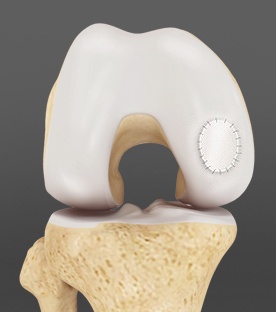
Overview of Cartilage Transplant
Cartilage transplant is a procedure that has been designed for transferring and generating new cartilage cells to the areas wherein the cartilage has already been damaged.
Who are the Candidates for the Procedure?

The persons who will most likely need this include those who:
- Have localized cartilage defects
- Are active
- Have an intact menisci
- Are between ages 15 to 55
Who are Not Candidates for the Procedure?
The ones who must not undergo the procedure are those who have:
- Abnormal distribution of weight inside the joint
- Unstable knees
- Been cured of cancer in cartilage, bones, affected limb’s muscle or fat
What the Procedure is All About
The articular cartilage of a person can be damaged because of traumatic injuries, sports, work injuries or the usual wear and tear that happens every day. This damage can then cause pain, locking, swelling or at times, even giving away of a person’s knee. Your cartilage lacks the natural ability of healing and once this has not been treated, the condition can worsen and progress to the development of osteoarthritis.
The brand-new cartilage that will be used is either an allograft or autograft cartilage. Allograft cartilage pertains to the bone and cartilage taken from the donor and has undergone screening for diseases. On the other hand, autograft cartilage refers to the own cartilage of the patient that was taken from either the opposite knee or similar knee.
Your orthopedic surgeon will take a small biopsy of your healthy cartilage and will have it sent to a laboratory. There, the cells will be grown until there are sufficient cells that can be used for repairing the cartilage that has been lost. The cells of articular cartilage grow in the solution that is made up of collagen, water, and proteoglycans that is responsible for the elasticity of the cartilage. Then, the cells will be multiplied with the use of the cell-culture technique. These will be stored in frozen state to be thawed only on the exact day of the transplant. Usually, 6 weeks is needed for the interval growing these cartilage cells. Around 12 million of brand-new cells have grown when the operation day comes.
Your surgeon is going to create an incision on your knee and clear away the tissue that has been damaged in order to prepare your injury. Then, the new cells will be injected and these cells will then attach to your bone and completely develop in order to form cartilage repair.
